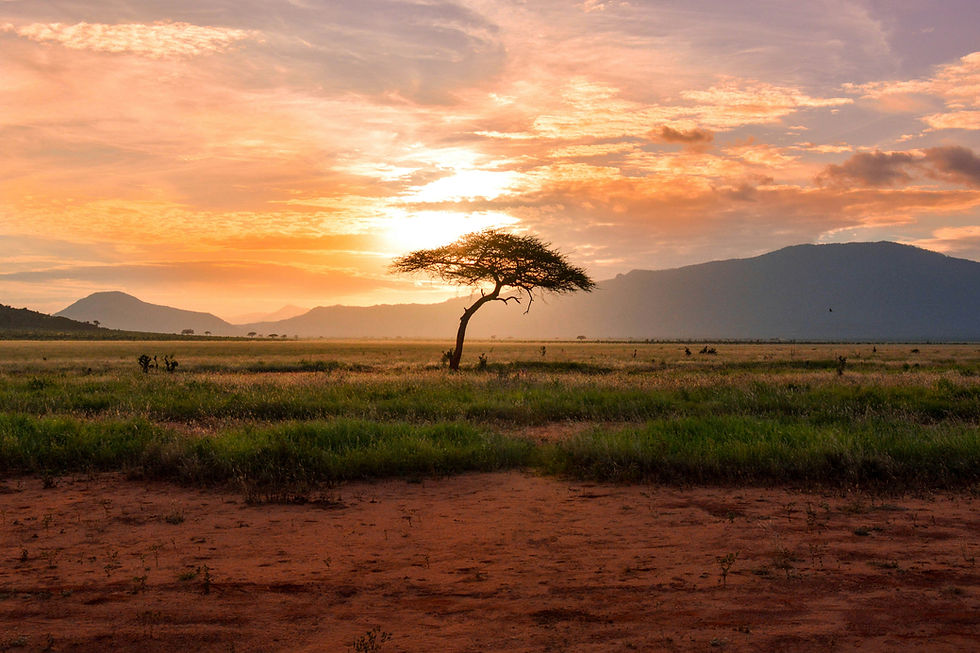Documentary Filmmaking: Remote Worldwide Shooting
- Mariessa

- May 4
- 3 min read

Filming around the world teaches you that while production skills transfer from one country to another, every place asks something different of you.
Each country, city, village, landscape, culture, and community moves at its own pace. Until you feel the rhythm of the land - and the people - things tend to resist you. What might have worked seamlessly elsewhere may fall flat in a new environment unless you pause and listen first.
You can prepare a lot before a shoot - equipment, logistics, storyboards, even interviews - but no amount of planning can fully predict what you’ll encounter once you're on the ground. The real skill is in staying clear-headed, adaptable, and grounded. When you’re following real stories, you have to hold your vision loosely and remain present. Let the place - and the people in it - shape how things unfold. Your level of flexibility may depend on the client or the project scope, but wherever possible, leaning into the unknown tends to reveal the most meaningful moments.
If you’re heading somewhere off-grid - whether that’s a jungle, desert, mountain pass, island, or rural community - here are a few things we’ve learned along the way.
Your first job is to understand the setting. Learn the geography, the seasons, the ways people move through space. What’s the infrastructure like? How do locals get around? What are the health and safety risks? Can you access clean water, shelter, medical care? Are there current political or cultural sensitivities you should know? The more tuned in you are to the region’s natural flow, the easier it is to work with - instead of against - your environment.
If you’re filming hours from medical care or in an unpredictable environment, insurance matters. That includes personal travel coverage, gear protection, and short-term production insurance suited to the project’s risk level. These policies don’t have to break your budget, but they do give you room to handle emergencies with less stress. They buy you time - and that’s priceless when something goes wrong. Believe me, an underwater housing failing the day before the main shoot isn't fun.
Ease into your location (even if you only have minutes to spare). When you arrive, don’t rush into filming. Walk. Watch. Listen. Take time to absorb the space before you pick up your camera. Be present, observant, intentional. What’s the light doing? What’s the energy like? Are there patterns in how people gather, work, or rest? Let the place introduce itself before you start asking anything of it.
Know your equipment better than you know your partner. Remote environments test your equipment. Know how hot your camera runs, how long your weakest battery lasts, and understand your lenses. Bring gear that works for your pace and shooting style.
Next up... assume you won’t have access to electricity - because there’s a good chance you won’t. Bring enough batteries to last entire days. Use solar panels, car inverters, multi-port charging stations.
When the power drops in a remote village, you may feel beautifully connected to the people around you… but if your batteries are dead, you might miss the very moments that could shape your story - or someone else’s future. Preparation protects possibility.
Back it up. Then back it up again. No exceptions. Back up your footage daily - ideally to two separate drives stored in different places. A lost or corrupted card can’t be undone. Field storage is light these days; carry more than you think you’ll need.
Light it up! Natural light is your friend in remote settings. It’s often the most cinematic, and the least invasive. Plan your schedule around it. Shape the light around you pack a few LED's and soft boxes. The moment you are able to let go of using "the right" tool, you are able to find a way to solve most production problems.
There’s so much more that could be said about filming worldwide. It's addicting, it's powerful, but it can also be very frustrating if you miss key areas in your process.
We’re launching a short-form video series with bite-sized tips on working internationally, adapting in real time, and filming in places that don’t always show up on the map.
Follow our youtube channel to learn more! @mandefilmmakers.
Lasting words: Enjoy the process, you will learn more in 5 minutes working remotely than you would in a year back home, it will challenge you but it's more than worth it. Go create and change lives!



Comments